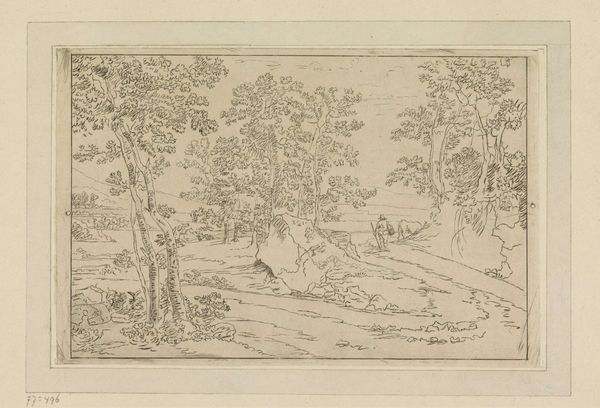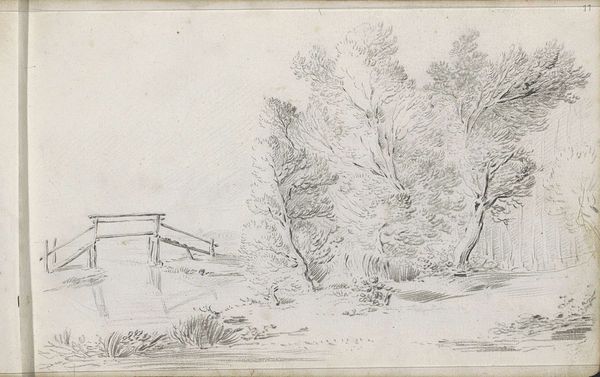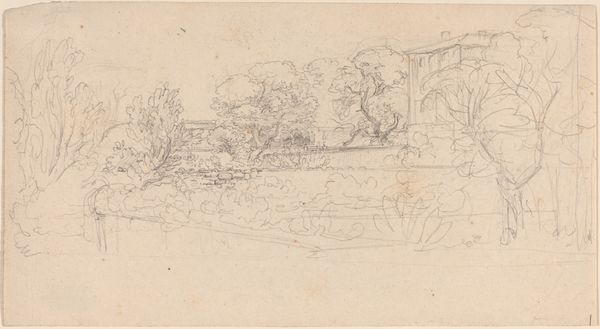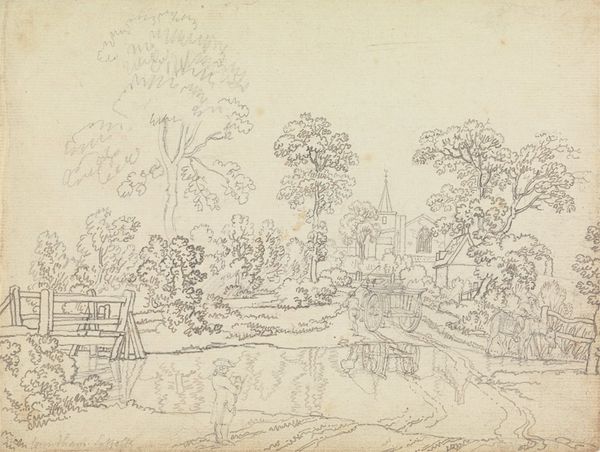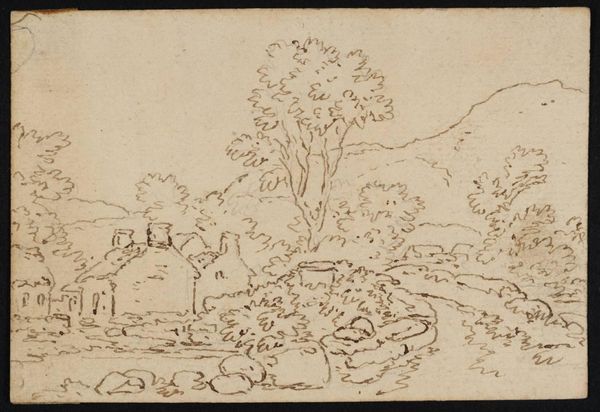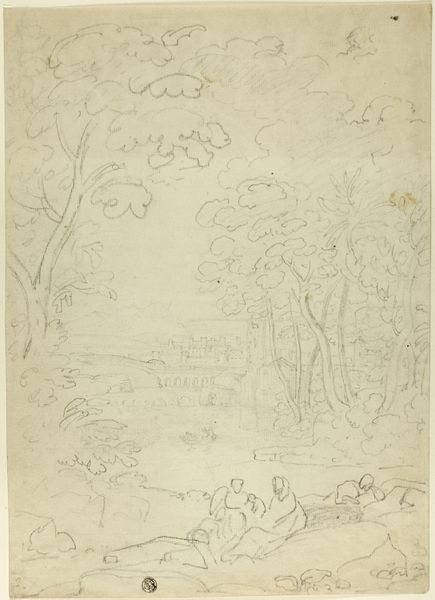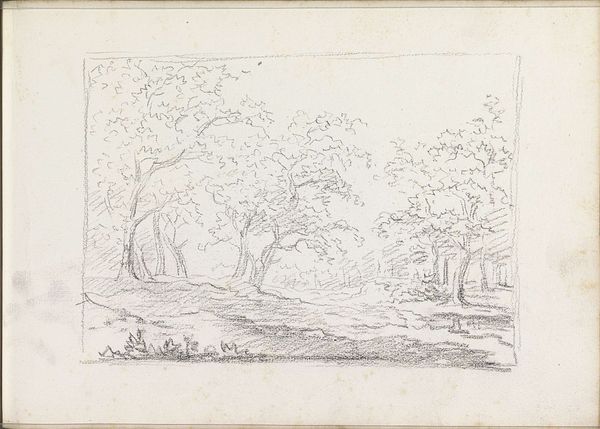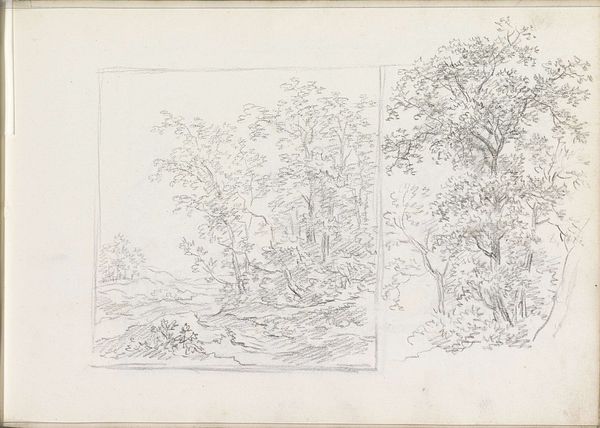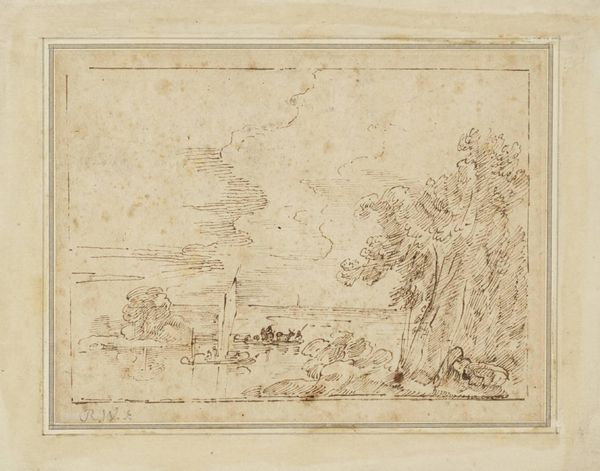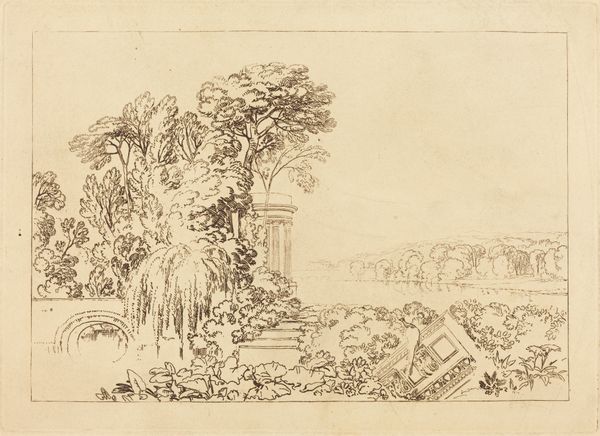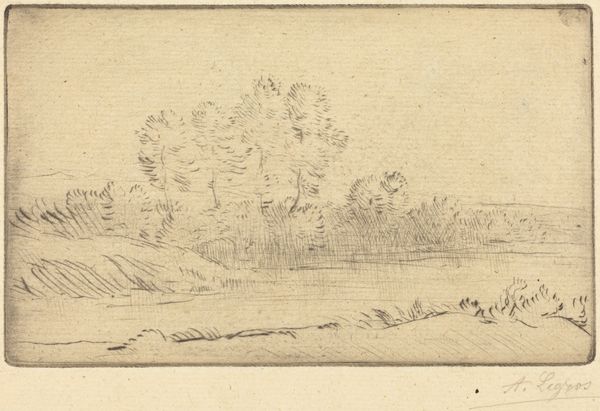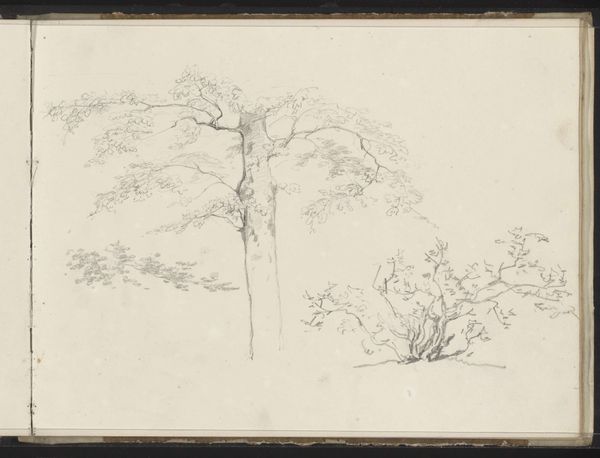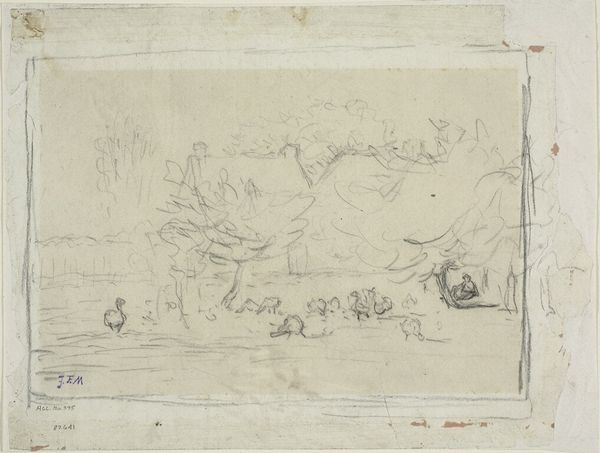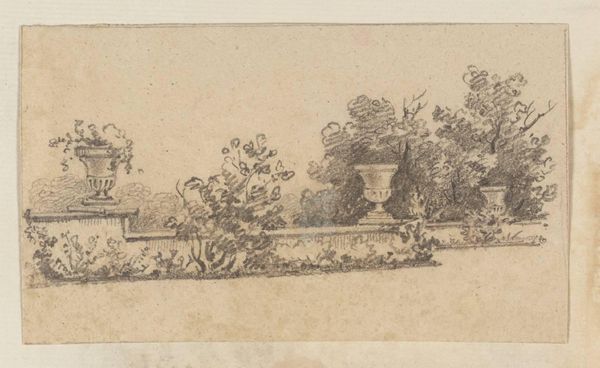
drawing, pencil
#
drawing
#
pen sketch
#
landscape
#
pencil
#
realism
Copyright: Public Domain: Artvee
Art Historian: Here we have what appears to be a casual notation, "Landscape at Henstead," rendered in pencil, presumably by Benjamin West. There's a lightness and spontaneity that really captures the essence of a quick outdoor sketch. Curator: My first thought? Quiet privilege. The pastoral scene feels incredibly composed, almost curated in its gentility. Who has the leisure to produce such a drawing, and whose land is being depicted? Art Historian: Interesting. I see a different kind of openness. Note the placement of the trees, how they frame the distant fields and hint at even further vistas beyond. It’s a composition of invitation, visually leading the eye deeper into the scene. And consider the almost archetypal image of someone bathing in the water. Curator: The bathing figure, nearly indistinct, is precisely where the unease arises. They feel less like an integral part of the scene and more like an overlooked detail, raising questions about representation and visibility. How are marginalized bodies depicted, or erased, within idealized landscapes like this? Who would swim freely here without the fear of any repercussions? Art Historian: That’s valid, yet it might also point to a symbolic baptism, or a purification ritual within the landscape. Think about water as a symbol across cultures – renewal, cleansing, the subconscious. The act itself is central, the identity almost secondary, subsumed by a greater natural force. The other person is a walker of the land. The two figures inhabit two different planes. Curator: But even the natural world carries historical weight. The "unspoiled" landscape often masks centuries of exploitation and displacement. What ecological impact has human activity had on this place, and who bore the brunt of that impact? Does the "naturalness" become a distraction? Art Historian: Perhaps it's more useful to consider the inherent human desire to connect with nature, a desire reflected across all classes and cultures despite different manifestations. Maybe the artwork serves to underscore our shared, foundational, humanity. Curator: Perhaps. But recognizing that connection shouldn’t blind us to the power dynamics at play, even in the quietest landscape. Thank you, it’s important to remember this. Art Historian: Agreed, it enriches our appreciation, giving us not only an aesthetic understanding but an ethical one, too.
Comments
No comments
Be the first to comment and join the conversation on the ultimate creative platform.
